Mind your digital business as AI takes root in health systems
“We Africans, we are like, ‘I want the latest Apple gadget when the iPhone 17 comes out, everyone wants it. But I would be happier if you were able to design and manufacture iPhone 5,” Musenero said.
Delivering a thought-provoking keynote, Musenero challenged Africans to rethink their relationship with technology, urging them to move from admiration to innovation. (Credit: Mpalanyi Ssentongo)
KAMPALA - Africa must stop being a mere consumer of imported technologies and start designing and owning digital innovations that reflect its realities, Minister of Science, Technology and Innovation Dr Monica Musenero has said.
Musenero made the call during the opening ceremony of the 2nd AI in Health Africa Conference at Makerere University Main Hall on November 6, 2025. The event is organised by the Makerere University Artificial Intelligence (AI) Health Lab, in partnership with the Health AI for All Network and the Infectious Diseases Institute (IDI).
The two-day conference, running under the theme: Setting AI for Sustainable and Inclusive Health Systems in Africa, has attracted over 250 delegates from across the continent, including policymakers, innovators, researchers, and technology experts, to discuss how artificial intelligence can transform Africa’s healthcare systems.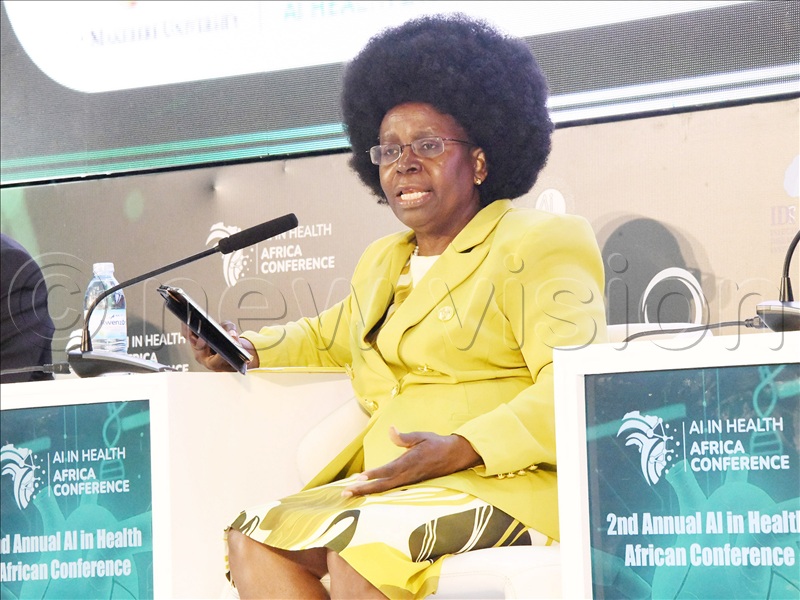
Dr. Monica Musenero, Minister of Science, Technology, and Innovation, during a panel discussion at the 2nd annual AI in health, African conference at Makerere University on Thursday, November 6, 2025. (All Photos by Mpalanyi Ssentongo)
Africa, mind your business
Delivering a thought-provoking keynote, Musenero challenged Africans to rethink their relationship with technology, urging them to move from admiration to innovation.
“We Africans, we are like, ‘I want the latest Apple gadget when the iPhone 17 comes out, everyone wants it. But I would be happier if you were able to design and manufacture iPhone 5,” she said.
Using humour and vivid storytelling, she likened Africa’s approach to technology to owning luxury items without understanding or creating them.
“I would be happier with you if you produced that car, more than the one who simply bought it,” she said.
Musenero, who once authored a presentation titled: Digital Transformation: Africa, Mind Your Business, cautioned that the continent’s role in the digital revolution must change from passive consumption to active creation.
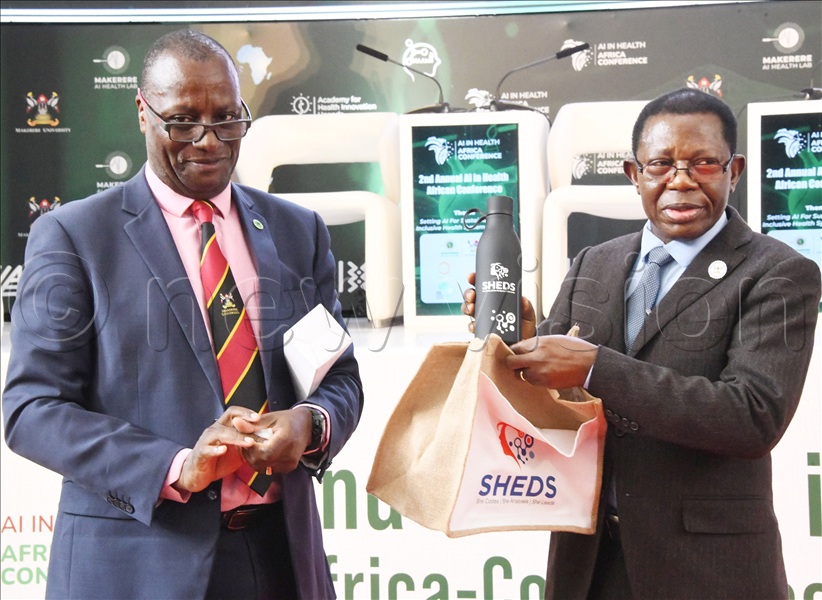
Makerere University's Prof.Buyinza Mukadasi (R) receiving a gift from Dr. Andrew Kambugu (L), ED, Infectious Disease Institute. This was at the opening of the 2nd annual AI in health, African conference at Makerere University on Thursday, November 6, 2025.
“We have tended to see digital transformation only in terms of consumption. But digital transformation is not just about consuming, it is about creating,” she said.
The Minister likened the pace of global technological advancement to a jet plane: Fast and fleeting.
“This moment in history, this age of artificial intelligence (AI), is like that jet whose sound you hear only after it has already passed,” she said.
“By the time we in Africa begin to hear the sound, the world will already have moved on. That is why we must act now, not as spectators or consumers, but as creators and innovators.”
She warned that digital systems could entrench economic dependency if Africans fail to own a stake in them.
“Digital is convenient, but it’s not easy. Digital can make you poorer if you don’t own part of it, let us be creators of AI creators.
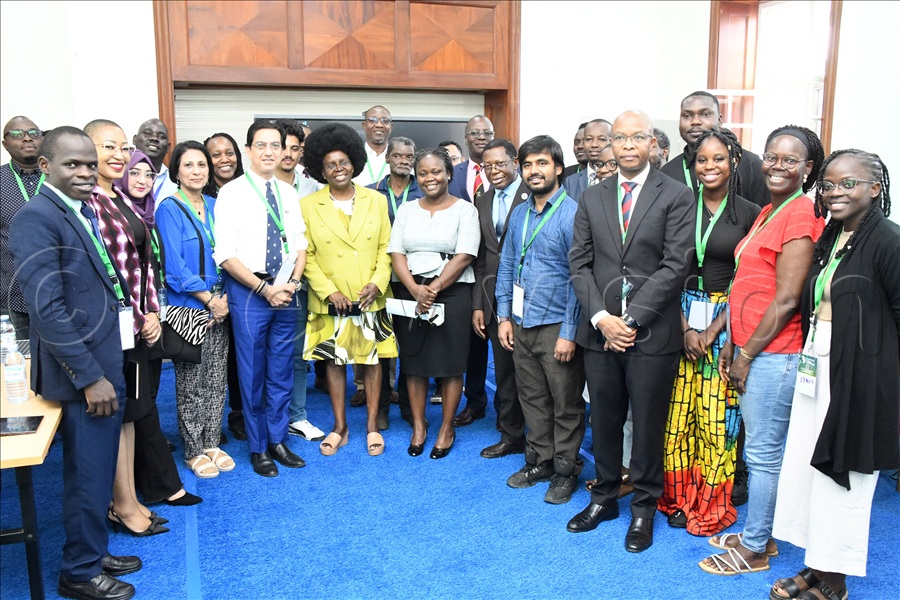
Several attended the conference
We should all own a plot in the digital economy and charge it as it charges you,” she said.
Musenero added that while AI offers great opportunities, it also carries risks that must be managed wisely.
“AI can lead to unemployment if we don’t secure our space and own our technologies. We should stop residing in the shallow part of AI. This is our time to own, to create, and to lead.”
Build AI with people, not for people
Makerere AI Health Lab chief Dr Rose Nakasi emphasised inclusivity and community-driven innovation as the foundation of trustworthy and sustainable health technologies.
“One of the key aspects we’re trying to highlight is how to build technologies that are sustainable, trustworthy, and equitable, especially equitable and well integrated within existing healthcare systems,” she said.
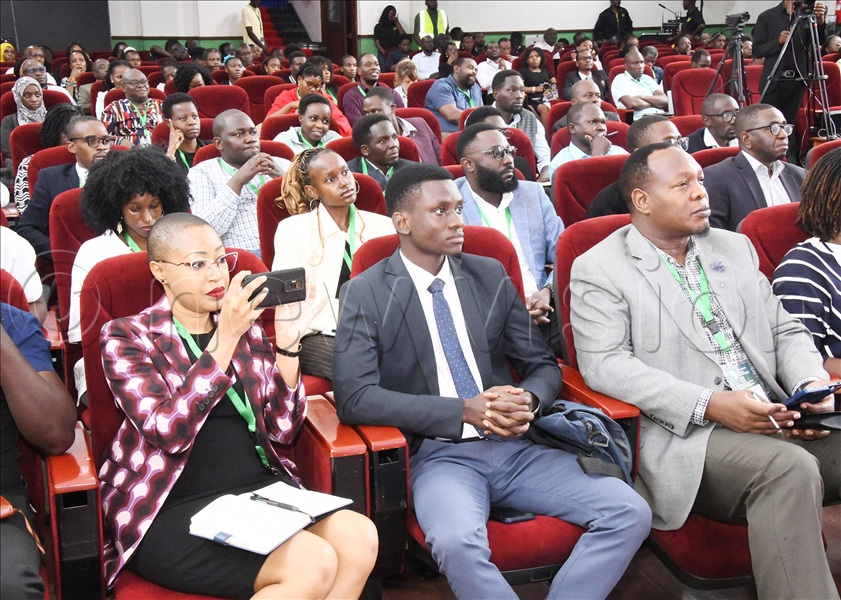
Some of the participants during the conference.
Nakasi noted that many African innovations fail to move beyond laboratories because they are developed in silos.
“We often build tools and then leave them sitting in labs. We build with just experts, without involving the end users, the patients and healthcare workers. We want to build tools collaboratively, involving different stakeholders from the very beginning,”she said.
She said co-creation and community feedback are essential for trust.
“If you come to me with a solution without understanding my needs or my context, trust becomes difficult because people trust what they understand. That’s why we must ensure AI tools are interpretable, understandable, and usable in every community, even in local languages,” she said.
Nakasi cited the Sunflower Project, which integrates translation tools in Luganda, as an example of inclusive design: With Sunflower, we’ve seen how AI can enhance communication between technology and community".
She added that Makerere’s AI Health Lab is developing a system that links AI-based disease diagnostics with electronic medical records (EMRs), allowing government and health agencies to access real-time data.
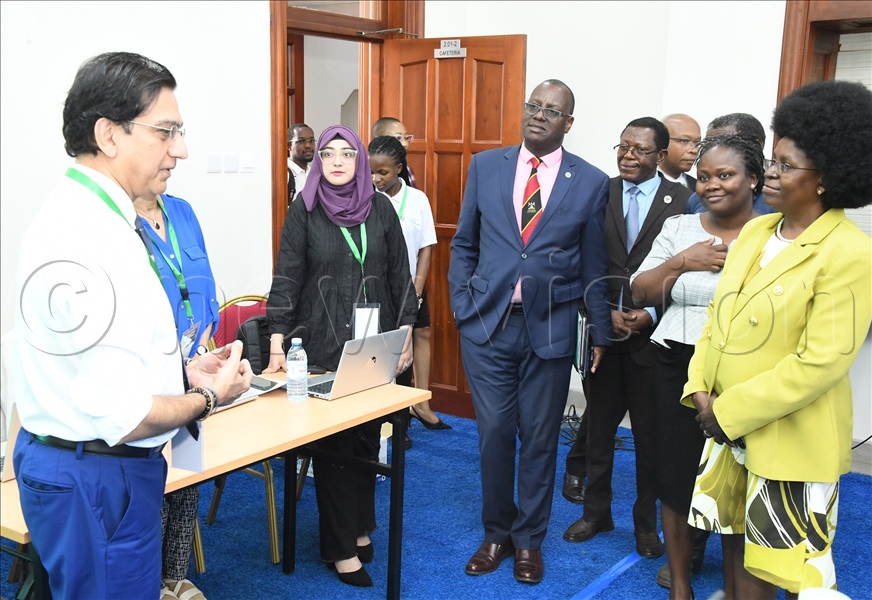
Tour of the exhibition at the 2nd annual AI in health, African Conference at Makerere University.
“Right now, most responses depend on data that takes weeks or months to compile. By the time reports are ready, outbreaks may have already spread. Through projects like Ophelia, we are advancing AI diagnostics to support healthcare systems and improve data-driven decision-making.”
Equipping students and shaping policy
Representing Makerere University’s Vice-Chancellor Prof. Barnabas Nawangwe, acting deputy vice-chancellor (academic affairs) Prof. Buyinza Mukadasi emphasised the role of research and education in advancing Africa’s AI agenda.
He noted that Makerere is prioritising AI in diagnosis, health research, and digital literacy as key enablers of transformation.
“To use AI effectively, students and professionals must first be equipped with the right knowledge and awareness. We must promote AI education and research policies that drive innovation and prepare young Africans to lead in this space,” he said.
Buyinza added that Makerere’s ongoing collaborations with continental partners would help translate AI research into practical tools that improve public health and social welfare.
As the conference continues, experts agree that Africa’s health future depends not just on importing smart systems, but on creating homegrown intelligence systems designed for African realities and powered by African minds.
For Musenero, the message was clear and urgent: Africa, mind your business. The time for us to create is now.